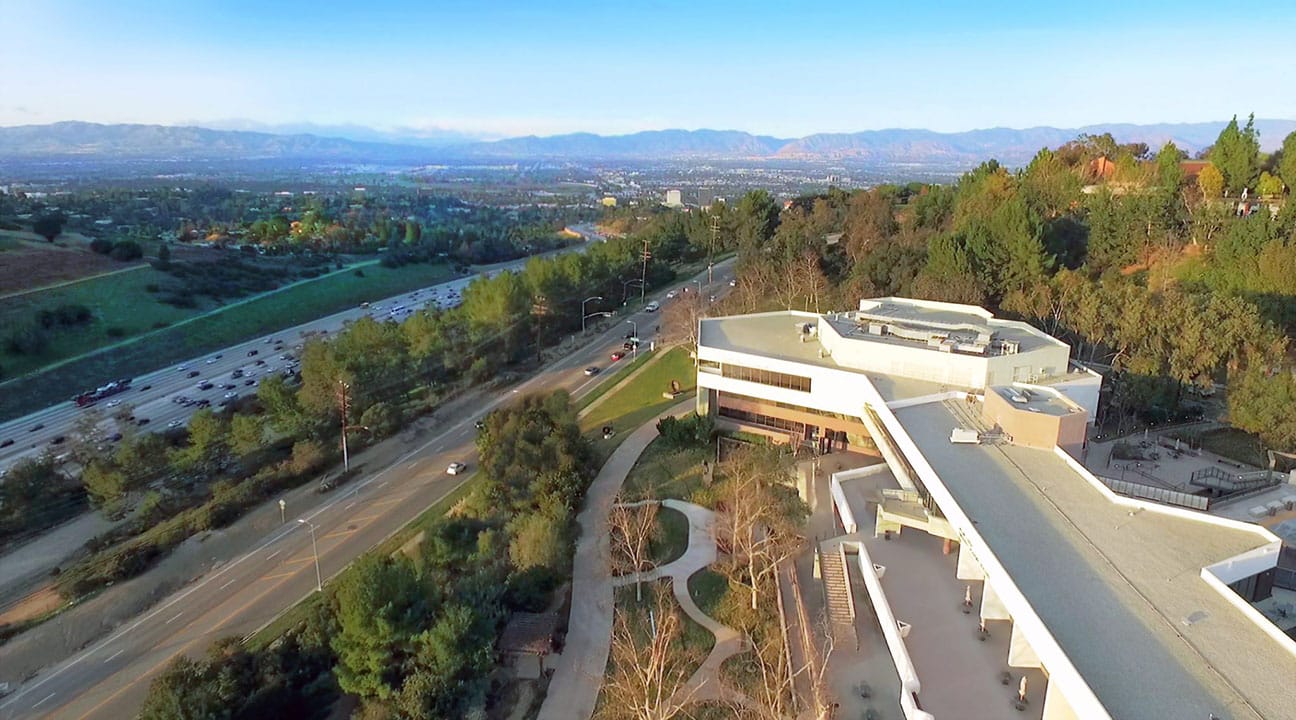 AJU’s Familian Campus (Photo courtesy AJU)
AJU’s Familian Campus (Photo courtesy AJU) These are the most difficult columns to write, because I’m torn between two sentiments. On the one hand, I don’t want to feed communal anger; but on the other, I don’t want to dismiss it either.
I’m referring to American Jewish University (AJU)’s decision to sell its Bel Air campus to an international education organization. Since AJU announced in February its intention to sell, one of the hot topics of conversation in our community has been, “Will they keep it in Jewish hands?”
Well, it won’t stay in Jewish hands. That decision has been made. From what I hear, they came close to selling the campus to Milken Community School, which is located nearby and needed more space to accommodate growth, but the sides couldn’t reach an agreement. Negotiations went back and forth for several months. In the end, AJU went with another, presumably higher, offer.
Had the sale to Milken gone through, this column would have turned from the hardest one to write to the easiest. Everyone loves a happy ending!
No such luck this time.
This lack of a happy ending makes me sad on two fronts. One, the hard feelings among people who opposed the sale will guarantee that some Shabbat and Holiday table conversations will be dominated by those hard feelings. I totally get that. That’s the reality of Jewish communal life. When people are upset, they want to share it with others, whether it’s on Rosh Hashana night or on a regular Monday night.
But the second, more important reason for my sadness is that not enough attention will be paid to what I believe is the essential question coming out of the sale:
What will AJU do with the money?
Losing “Jewish real estate” is more tolerable if the tradeoff is that the community would gain something greater.
In other words, can AJU take its new funds and accomplish something over the next 20 years where we can look back and be grateful for what they’ve given the community?
The past two years give us a clue. Since the onset of the pandemic, AJU has reinvented itself as a global resource of Jewish learning. It created an online conversation platform, Maven, that has hosted prominent speakers from around the world. It also relaunched its business program as the online School of Enterprise Management and Social Impact, training MBA students to become purpose-driven leaders.
This reinvention won’t please everyone. Many of us are emotionally attached to the old AJU and the communal events and programs we attended for many years. But that model was no longer sustainable, either for a college or for communal events. Especially in this lingering COVID era, it’s tough enough to get Jews to show up for anything, let alone schlep in 405 traffic to get there.
Don’t get me wrong: Getting Jews to show up in person will be a huge priority in the post-COVID Jewish world. But that also means having locations that are more easily accessible than a mountaintop.
Put simply, from what I can gather, AJU looked at a radically changing world and its human assets and decided that its best bet was to become, among other things, a global force in online Jewish learning.
AJU’s challenge will be finding the right balance between its global online presence and its in-person communal presence. It still owns the 2,700-acre Brandeis Bardin Campus in Simi Valley, which hosts the annual Camp Alonim summer program; it will need to figure out what else to offer the local community. To help sort this out, it has established a working committee to oversee the process and plan for the future.
Here’s the intriguing question: If AJU indeed finds the right balance between its global and local presence, and L.A. becomes home to a popular, world-class online learning institution in the Jewish world, will that be a net win for our community?
Also, can Brandeis Bardin become a premier destination for Jewish retreats? And will AJU use its new capital to surprise us with some creative local initiatives, including a new location with original programming?
I get that some people would prefer not to dwell on such questions right now, because they’re still upset over the sale. I don’t want to dismiss those sentiments or even downplay them.
All I’m saying is this: for better or for worse, the decision has been made. What’s the best way to now move forward? Yes, it’s OK to grieve the loss of Jewish real estate and at the same time bemoan why it had to happen.
But while we do that, it’s also OK to wish AJU well on its new journey, give them some space to see what they will do, and, yes, even hope for a happy ending.
Shana tova.























 More news and opinions than at a Shabbat dinner, right in your inbox.
More news and opinions than at a Shabbat dinner, right in your inbox.